Season 18
“Publishers didn't want to deal with the meatpacking articles… You need a legal review. It takes a lot of time. You have to really nail things down because you obviously don't want to be sued by a fifty three billion dollar company.”
— Alice Driver, 2024 Lukas Prize work-in-progress winner.
Author Alice Driver talks about the uphill climb to publish her Lukas Prize-winning book, “Life and Death of the American Worker,” and the “priceless” support the award offered…on top of the $25,000 prize money.
“If I don't do it, who will?” has sort of been my mantra. And I think that is what I would encourage young journalists to think.”
– Phil Williams, News Channel 5 Nashville’s Chief Investigative Reporter
Our first VIDEO podcast! Phil Williams, titan of local journalism, five-time duPont-Columbia Award winner and dubbed “Nashville’s Nosiest Bitch” - by satirist John Oliver - talks about his most recent duPont Award-winning investigation, Hate Comes to Main Street. In the series, Williams squares off with local right-wing politicians and white supremacists to expose how conspiracy theories are shaping political life in Tennessee.
Season 17
“If we're not looking at these issues and understanding them for what they actually are - not just what we hope they are - I don't see much of a bright future, for my kids or anybody else's.”
—Evan Simon, ABC News Producer
Ever wonder if your plastic really gets recycled when you throw it in that bin? Lisa Cohen and Abi Wright speak to ABC News’ Chief National Correspondent Matt Gutman, and his producing team to hear how they tracked their own plastic bags, with surprising results.
“It is easier than it's ever been in the history of human civilization to get your work in print, on the air, on the web. And that is just an amazing opportunity that frankly no other generation before you has had - so have at it.”
- HBO Real Sports’ David Scott’s advice to young journalists
We revisit duPont-Columbia Awards Winner David Scott’s interview to mark the end of an era - 29 seasons of the groundbreaking “Real Sports with Bryant Gumbel," a hard-hitting magazine show that looked at sports from the complex lens of power, culture, and human rights.
“These were just ordinary women turned outlaws.” - Director Tia Lessin
Directors of the 2023 DuPont award-winning film ‘The Janes’, Emma Pildes and Tia Lessin join journalist and J School Adjunct Professor Jessica Bruder for a lively conversation about their film that deep dives into an historic underground service for women seeking safe, affordable, illegal abortions, in the 60s and 70s.
“The incentive structures in the worlds of politics and news media… are geared towards division and not just division, but demonizing people. And it's very dangerous. It has already resulted in loss of life.”
-CNN’s Jake Tapper
Jake Tapper is the CNN Chief Washington Correspondent, anchor of The Lead with Jake Tapper, and co-host of the Sunday morning public affairs program State of the Union. In 2023, he was part of the team that won a duPont-Columbia award for their coverage of the conflict in Ukraine. He also hosted the awards at Columbia University in 2018.
In this episode, Tapper sits down with Columbia Journalism School’s Dean Jelani Cobb to reminisce about their longstanding friendship and talk about the extraordinary state of American politics. including how journalists should report on figures like Trump.
“Maybe the whole art of being a journalist, is being defenseless…you have to be willing to be injured by what you see and somehow convey that..but also not to not to let that injury get in the way of seeing.”
–Journalist Masha Gessen
Masha Gessen is an award-winning journalist and author who received the 2022 John Chancellor Award for Excellence in Journalism, honoring their decades-long career. They have covered topics such as Putin, Trump, L.G.B.T.Q rights, and most recently, Russia’s invasion of Ukraine.
In this episode, Gessen joins fellow New Yorker staff writer and Columbia Journalism School’s Dean Jelani Cobb to discuss the path that led them to become an essential voice highlighting some of the most vital and pressing issues facing Russia, the US, and beyond.
Season 16
“I respect the Boy Scouts. I respect what they were founded on. But there was a really dark side and no one was talking about it.”
–Leave No Trace Director Irene Taylor
“Leave No Trace” is a 2023 duPont-Columbia Award winning documentary that exposes the stunning history of sexual abuse faced by over 80,000 young men and its subsequent cover up by The Boy Scouts of America. The film highlights the voices of six men and boys, who bravely share their stories and hold power to account.
Director Irene Taylor talks about the relentless way her team took on an “All-American” institution and the sensitive way they approached its survivors.
“We all understand just how easily history is forgotten. And this history is being actively destroyed.”
–Podcast Host Connie Walker
“Stolen: Surviving St. Michael’s” is a 2023 duPont-winning series that uncovers the horrific abuse many young indigenous children–including the reporter’s own family–faced at a Canadian residential school.
Host and investigative journalist Connie Walker talks about the ethics of making public long buried stories of sexual abuse, highlighting indigenous voices and her own personal stake in this impactful podcast.
“They had told the story of how Tamika died, but not how she lived.”
—Podcast Producer Erika Alexander
“Finding Tamika” is the 2023 duPont-winning Audible series about Tamika Huston, a Black woman who went missing in 2004. The media paid scant attention, and she became a rallying cry for missing Black women and girls. But who was she outside of this tragedy?
Podcast producer Erika Alexander tells us why finding the real Tamika behind the crime statistic is so important, and how journalists need to do a better job of telling these stories.
“People are often surprised when they watch the film and they realize that it's sort of a dark comedy. It's a funny movie. He's a funny guy.”
“Navalny” follows Alexei Navalny, his team and his family as he investigates his own poisoning, and heads back to Russia to meet his fate. Director Daniel Roher explains how he built a relationship with Russia’s most prominent opposition leader.
“I've seen officers lie in reports or stretching the truth - that's not new - but to entirely make something up completely and unequivocally, that just was really disturbing”.
- Dave Biscobing, ABC15 Chief Investigative Reporter
Dave Biscobing’s investigations of the Phoenix police department exposed both dishonest officers lying on the witness stand and outrageous accusations fabricated against Black Lives Matters protestors. Tune in to learn what he found, and how he found it.
“We knew it was important to let the cameras continue to roll live. But I'll be honest, we were nervous about where this was going to go when we saw those armored vehicles show up.”
— VP of News Stephanie Adrouny, NBC Bay Area
The 2022 duPont-winning documentary “The Moms of Magnolia Street” follows three mothers who protest Oakland’s affordable housing crisis by illegally occupying a vacant home. Tune in as NBC Bay Area documentarians talk about following along from defiant start to explosive finish.
“We understood the magnitude of the event fairly early on and the need to start collecting evidence…That's how we think of this. As evidence, not just cover or B-roll.”
— New York Times Visual Investigations Lead Malachy Browne on the January 6 Capitol riots.
“Day of Rage” is a New York Times visual investigation of the January 6th attack on the U.S. Capitol. Co-director Malachy Browne explains what it was like to organize and dissect thousands of hours of footage from “one of the most documented acts of political violence ever.”
In 2019, This American Life founder, host, and producer Ira Glass gave his special brand of insight into how he crafts “This American Life,” from story inception, to reporting, writing, and production. We revisit his preeminent editorial style that paved the way for generations of narrative docu-style podcasters.
Season 15
“I felt like I don't have to tell you how brutal racial capitalism is in the United States if I am showing you. I wanted capitalism to indict itself in the film.”
--- director and producer Loira Limbal
In her 2022 duPont Award-winning documentary “Through the Night,” filmmaker Loira Limbal intimately captured the burdens on working mothers and puts a mirror to America’s daycare system, reflecting back the darker sides of capitalism.
“Finding people who praise the government is easy. Finding people who are critical of the government is easy. What is the most difficult is convincing some people who are ordinary citizens who have information to come out and speak up. ”
--- director and producer Nanfu Wang
Filmmaker Nanfu Wang assumed a risk few dared during the early months of the COVID-19 pandemic in China. In her 2022 duPont Award-winning documentary, “In the Same Breath,” Wang and her team take their cameras into Wuhan’s hospitals to reveal the disparities between the devastating reality of the pandemic versus the rosy depiction Chinese officials painted for the masses. She details the logistical and emotional difficulties of creating such a film inside an authoritarian country on strict crackdown against freedom of speech – all amid a deadly pandemic.
“For those of us that are in civilian life, if you were a victim of abuse or harassment, you would go to the police, right? In the military, it's handled internally…it's like a family. It's very difficult for the commander who is a parent to then want to kick a child out of the military for something they've done.”
--- CBS News Managing Editor and Anchor Norah O’Donnell
CBS News Anchor, reporter, and editor Norah O’Donnell exposes gross mishandling of sexual assault cases inside the U.S. military, in her 2022 duPont-Columbia award-winning broadcast, “Military Sexual Assault.”
Speaking to families of victims, government officials, and dozens of victims, she sheds a damning light on the abuse the military tried to keep quiet.
“There were literally holes in the newspaper...that related to what happened during the Tulsa Race Massacre. That just stuck with me. I remember thinking, I have to go look into this and see if that is reality.”
--- WNYC host and reporter KalaLea, “Blindspot: Tulsa Burning”
WNYC’s KalaLea talks about how her 2022 duPont Award-winning podcast series immerses listeners in the past, while threading the impact of generational trauma through to the present.
“The most important thing that people need to understand when they're looking at plastic is that it is trash. It is not valuable. It cannot and will not be turned into something new without great expense that nobody's going to pay for.”
--- NPR correspondent Laura Sullivan, “Waste Land”
Reporting for NPR’s Planet Money, investigative correspondent Laura Sullivan found herself sifting through boxes of decades-old archives, and stumbled upon 50-year-old oil and gas industry trade notes. They led her to one compelling central source – a regretful oil “big whig” – and down a reporting path about the damning history and the questionable future of plastic recycling.
Season 14
“I think it would be nice if this documentary was kind of like a road map for law enforcement to be the best versions of themselves as they can be.”
— Ed Ou, Co-Director "A Different Kind of Force: Policing Mental Illness”
In a candid conversation, video journalist Ed Ou reflects on his 2021 duPont Award-winning documentary, A Different Kind of Force—Policing Mental Illness, for which he embedded with a San Antonio police unit specifically geared to deal with mental health crises.
Ou discusses the ethics of covering the mentally ill, the challenge of telling stories with great moral complexity, and his own run in with police when he was assaulted covering a Minneapolis protest.
“When a person goes to prison, the last image usually people have of them is in the courtroom... By the time we talk to a person it’s 15, 20 years later. And this is a totally different person.”
-- Ear Hustle co-creator, co-producer and co-host Earlonne Woods
Nigel Poor and Earlonne Woods reflect on their 2021 duPont-award winning project, “Ear Hustle,” a podcast series produced inside San Quentin State Prison in California. They discuss the project’s origins, the challenges of building trust and producing stories within a prison system, and their journalistic approach to telling difficult stories about complex and sometimes controversial subjects.
“I'm sometimes heartwarmed and sometimes I'm frustrated. Sometimes I'm reminded that, you know, the power of storytelling can be so amazing and that people really do care and people can empathize with cultures beyond their own. And then sometimes you see the frenzy of social media and what's going on in America and then you get really frustrated.“
VICE Senior Correspondent Isobel Yeung reflects on her 2021 duPont award-winning work, “India Burning.” She discusses the rise of anti-Muslim discrimination in India, the tension between spotlighting the oppressed and keeping them safe, and the broader challenge of making an American audience care about foreign news.
“Our lived, authentic experience is not only important... but it adds to the breadth of the kind of stories people are reading about. If we're a missing color in the landscape of journalism, it's just a little grayer without us.”
Crip Camp Directors Jim LeBrecht and Nicole Newnham discuss the importance of including unrecognized voices to the journalism landscape as they reflect on the six year challenge of melding dual roles as subject and filmmaker, of weaving civil rights history with human stories...and how Barack and Michelle Obama helped them figure it all out.
Season 13
We’re excited to bring you Season 13 of On Assignment. New episodes drop the first Friday of every month. Subscribe on iTunes, listen on Soundcloud, or follow us on Twitter to get the latest. The first episode of Season 13 drops tomorrow!
“Mississippi is very particular. It's the state with the most lynchings. It's a state that just holds so much hurt, national hurt. And so the flag is symbolic of that, right, because this was the last state in the Union that had the Confederate emblem on their flag.”
Radiolab Host and producer, Jad Abumrad, on the history and meaning of the Mississippi state flag, the subject of the 2021 duPont-Award winning podcast episode “The Flag and the Fury”
“She began to describe what was on the clip. And the first question was, are we going to put video on the air of someone being killed? That's obviously a very bright line, editorial decision that you don't make every day. And normally we wouldn't. But to understand the sequence of events and what happened, you needed to see all of it”
- KSTP News Director, Kirk Varner describing the 5am phone call that alerted him to the video of George Floyd’s murder.
“I remember my news director came to me and the weekend co-anchor and she said, ‘You know, I don't know that we'll get to this. But hypothetically, if we needed to broadcast from home, can we put a camera in your apartment?’”
WNBC News Anchor David Ushery on how the hypothetical became all too real, as he talks about covering the COVID pandemic in its early epicenter - New York, New York.
“Any time you are dealing with an event that has so much scrutiny, the bar is really high. I think we all felt the pressure of, worrying about saying something that could be refuted. And so we really just focused on the visuals and what do the visual show, because that is kind of irrefutable.”
- 2021 duPont award winner Nadine Ajaka ofThe Washington Post on the challenges of reconstructing the violent clearing of Lafayette Square by federal officers.
“It's a story of a guy who was locked in a room and the key was thrown away 20 years ago. This guy never got charged. He never got a trial. That is medieval. That is not a thing that should happen in a modern country, especially a country that prides itself on life, liberty and due process and justice.” - Radiolab’s Latif Nasser on his podcast series, The Other Latif
“The reason the story was worth telling was not just to identify a Trump doppelgänger in history, but to really tell the story of the good guys…the people who did right…and made the system work.” -- Rachel Maddow
Season 12
“I'm sorry to say I knew from the beginning that we weren't going to be able to control this disease, because Americans won't cooperate.” -- Donald G. McNeil Jr.
On our latest episode of On Assignment, The New York Times Science and Health Reporter Donald G. McNeil Jr., 2020 winner of the John Chancellor Award, discusses the rise of his career covering infectious diseases to The Daily host Michael Barbaro.
“The greatest enemy of democracy is interference with the right to vote.” -- Professor Henry Louis Gates, Jr.
On our latest episode of On Assignment, Henry Louis Gates, Jr. relates his 2020 duPont-winning documentary series Reconstruction: America After the Civil War to events of today with duPont juror Mark Whitaker.
“John really insisted on using the word “uprising.” Because as I'm keenly aware, based on my background, one person's riot is another person's uprising, depending on which side of the equation you're sitting.” - ABC News Producer Jeanmarie Condon on the language used in “Let it Fall: Los Angeles 1982-1992.”
This month’s On Assignment podcast revisits the deep reporting behind the 2018 duPont-Award winning documentary, linking the decade up to the Rodney King beating with the 1992 uprising that followed. Director John Ridley and ABC News Producers Jeanmarie Condon, Melia Patria and Fatima Curry discuss the film’s ongoing relevance as America faces a racial reckoning after the murders of George Floyd, Breonna Taylor, and so many others.
“We were called to a meeting… in the basement of one of the government buildings in D.C.. We went in the backdoor so our visit wouldn't have shown up on any logs….” —- CBS News Producer Michael Rey on behind-the-scenes, under the radar reporting for the duPont Award winning 60 Minutes “On the Border” series.
This month On Assignment goes an inside look at the groundbreaking reporting in 60 Minutes’ two-part series “On the Border,” which explored family separation at the US/Mexico border. Producers Michael Rey and Oriana Zill de Granados discuss secret meetings with government sources, and what it was like to have a U.S. president criticize their work. They also talk about the challenges of remotely producing the news for television in the age of COVID-19.
This month On Assignment is revisiting a popular past episode with Kai Wright and Kaari Pitkin of WNYC, creators of the podcast series “Caught: the Lives of Juvenile Justice.” The series gives young people in the juvenile justice system a chance to tell their stories, showing the human side of an often underreported part of the criminal justice system.
This month On Assignment is revisiting a popular past episode with New Yorker Staff Writer Jelani Cobb, who teamed up with FRONTLINE to ask a simple question: Can a troubled police department be reformed? To get answers Cobb embedded with the gang unit of the Newark, New Jersey police department and spoke to officers, citizens, and city officials. Hear him and FRONTLINE producer James Jacoby in conversation with Professor Betsy West on the latest On Assignment podcast.
Season 11
“That is a holy thing to do - to come forward. I think the verse goes, ‘Thou shall see the truth and the truth shall set you free.’” - Charlie Specht, Chief Investigator, WKBW Buffalo
Specht was dubbed “the source whisperer” by his primary whistleblower. In this episode of On Assignment, he tells how he worked with sources for his 2020 duPont Award-winning reporting on the Buffalo diocese, Fall From Grace: When Priests Prey and Bishops Betray, which uncovered years of mishandled abuse cases and led to the resignation of Bishop Richard Malone.
“When you're starting out, you feel a sort of invincibility and there is an arrogance that comes with with real youth and inexperience…The more really dangerous situations I have been in, the more cognizant I am of the fact that life is very precious and that death is not something to be trifled with.” — CNN’s Clarissa Ward
Clarissa Ward’s reporting from global hotspots – Afghanistan, Syria, and Yemen among many others – has won her two duPont-Columbia silver batons. She joined duPont Awards Director, Lisa R. Cohen for a very personal conversation about covering crises, COVID related reporting challenges, and career tips for young journalists.
“Thankfully, we were just so far ahead of the national media, because we got there first and we had people providing us with information, and we had already been working on it for a week straight. So we we were playing chess and they were playing checkers.” — Joe Bruno, WSOC Political Reporter
WSOC-TV political reporters Joe Bruno and Mike Stolp discuss their duPont Award winner - breaking an election tampering scandal in North Carolina’s Bladen County that dominated national headlines, and flags important questions about mail-in voting.
“We've had two dozen theater screenings by now. It's mostly white audiences that really feel opened up to a world that they didn't know — people saying, I had no idea that’s six miles from my house, I didn't know that's what life was like there.” — Filmmaker Lindsey Seavert
Local Minneapolis reporters Lindsey Seavert and Ben Garvin became documentary filmmakers by taking their nightly news coverage of visionary principal Mauri Friestleben and the students of Lucy Laney Elementary and turning it into a duPont Award Winning Documentary, Love Them First.
“Our democracy is imperfect. All of the problems that existed before this film still exist. But whether it's voting, volunteering on a campaign or in your community, to running for office, I hope people feel like there's a place for their voice in the democratic process.” — Rachel Lears
Award-winning director Rachel Lears discusses her prescient film Knock Down the House, which followed four women, including Alexandria Ocasio-Cortez, running insurgent, grassroots campaigns.
“I hope that the film could serve as a record. Fifty years later, 100 years later when people truly want to understand, the official version of history is not the only version.“ -- Filmmaker Nanfu Wang
Award-winning director Nanfu Wang (Hooligan Sparrow, I Am Another You) talks with Columbia Journalism Professor Betsy West (RBG) about her shocking film One Child Nation.
Season 10
“One person hearing the other person tell her story on television had empowered the next person to come forward. And you got a sense, that in the room too, they were finding strength in numbers and power in numbers. ”
Revisiting an early #MeToo moment - Kate Snow talks about her 2017 duPont Award winning interview with 27 of Bill Cosby’s accusers.
“She had not seen it, and she never asked to see it ahead of time which is pretty extraordinary…people are always asking to see your work ahead of time. She never asked. ” — RBG Producer/Director Betsy West
A repeat of one of our most popular episodes: A look back at last year’s Columbia J-School screening of “RBG,” when the Supreme Court justice herself made a surprise visit. The filmmakers talk about the power of optimism, and how RBG herself reacted to seeing the film for the first time in front of a sold out audience at Sundance.
“Most writing about race simply says ‘there's a disparity that exists.’ That's not news... What's much more important is the why and the how. And I don't think that we see nearly enough of that.” — Nikole Hannah Jones, NYT Magazine
A repeat of one of our most popular episodes: NBC News Anchor Lester Holt speaks with NYT Magazine reporter/writer and 2019 winner of the John Chancellor Award for Excellence in Journalism about the convergance race and reporting.
“It really is just like a bunch of people thinking what would amuse us to put on the radio, and we're interested in the news and what's going on. And honestly it is not more sophisticated than that.” — This American Life Host/Producer Ira Glass
In our special 50th episode, find out what goes into the making of This American Life, one of the most listened to radio shows - one that spawned a generation of podcasts.
Bonus: Hear Ira’s sage advice from his speech to the Columbia Journalism School graduating class of 2018.
Season 9
“The work we do as journalists on some level is exploitive. That is why then we have an ethical standard to not just be trying to entertain people…That is to me, horrific, because there has to be an actual meaningful reason why I'm doing it.” — WNYC “Caught” Host Kai Wright.
WNYC “Caught” Host Kai Wright and Sr Producer Kaari Pitkin talk about their award winning series on young people caught in the justice system, giving the mic to their subjects, and the challenges of reporting such a difficult topic.
“The first battle is almost with yourself. Because you often are running away from what makes you different…whether that’s being a woman of color whether that's being a practicing Muslim, whether that's being an Arabic speaker, often you want to prove yourself on somebody else's terms.”
Season 8
2019 duPont-Columbia winner Alexandra Shiva talks navigating language and cultural barriers to make a humorous and important film about refugees that transcends party lines.
In our latest, we catch up with 2019 duPont award winning director Alexandria Bombach about her latest film, “On Her Shoulders.” It’s an achingly beautiful 3-month snapshot of the life of activist and Yazidi genocide survivor, Nadia Murad. But it’s also a call to action for journalists and filmmakers, to think about the stories we tell, how we tell them and most importantly, why.
2019 duPont-winning Directors Trish Adlesic and Geeta Gandbhir interviewed 14 eloquent, emotional rape survivors for “I Am Evidence,” but only four women’s stories made it into the film. Tune in to this episode to hear about the painstaking choices they had to make as they navigated finding, selecting and telling these stories with honesty, integrity and care.
Director Bing Liu started making “Minding the Gap,” when he was 23-years-old. Now, six years later, he’s premiered at the Sundance Film Festival and snagged himself an Oscar nomination.
As the countdown to the Academy Awards begins, get a behind the scenes look at how Liu made the film, plus hear about some of his ethical dilemmas while filming. But before you listen, be warned. There will be spoilers.
Season 7
“I think that fairness means that you are fairly representing the sides. That fair representation may be that one of the side’s arguments is bullshit.”
A conversation between The New York Times Magazine’s Nikole Hannah-Jones and NBC’s Lester Holt, where she goes deep on reporting about race, the perils of making things personal, and much more.
Roger Ailes founded Fox News, kicked off #MeToo, and helped elect Donald Trump. “It was about using Roger's story to try to make sense of where we were as a country...it gave us a point of entry to a difficult, complicated, national moment,” says Producer Will Cohen. In this episode of On Assignment, Cohen discusses navigating Fox News for access, the challenge of profiling a dead man, and how Ailes influenced the current media and political climate.
“RBG” Directors Julie Cohen and Betsy West plus Executive Producer Amy Entelis talk the power of optimism, the challenging rules for filming in the Supreme Court, and how RBG herself reacted to seeing the film for the first time in front of a sold out audience at Sundance.
When you spend 15 years on a story, you tend to get so close to your sources, they sometimes get jealous: “They felt as if I was in some ways cheating on them by talking with other people.” Lukas Prize winning author Isabel Wilkerson talks about how to navigate source relationships in her immersive book “The Warmth of Other Suns”.
Season 6
“So a kid did scribble on a sidewalk. Is that technically vandalism? Sure. But is the best way to handle it really for the officer to arrest that kid?”
As the new school year begins, a new On Assignment episode explores how schools across the country are disciplining students...by arresting them.
“If we think it's vital to the story we'll probably do whatever it takes to make it happen.” ABC15’s Dave Biscobing on his relentless, 2018 duPont-winning series that showed a self-described “advocacy” group was really “advocating” to put millions in their own pockets.
“Our stories in the end are (less) about sports - they're about power or culture or triumph over adversity or human rights. It is almost like a Trojan horse to get inside and then ask the human rights questions.”
Season 5
Zoe Chace of This American Life and Michael Barbaro of The Daily speak about the rewards and challenges of making stories for audio, the "tyranny of the good talker," and the sense of intimacy that comes from the voice alone.
“The solution to this whole fake news crisis is not being sucked into it, and covering the story. What we don't want to do is do 'he said, she said' journalism. It's not very good for clicks though.”
“When we were in the back of a van crossing Hungary to Vienna, the driver was drunk and all the smugglers had AK-47s... and I remember my cousin looking at me like, I hope you're not filming. But I was secretly holding the camera.”
Exodus’ subject Hassan Akkad on filming himself, and Director James Bluemel on collecting these important stories.
“There's something spectacular about audio. There's something so intimate about being you know in between those two ears and it's it's been transformational for me... And we're just so lucky that audio happened at this moment when people were craving it. “
NYT The Daily’s Michael Barbaro talks about audio’s appeal with This American Life’s Zoe Chace in a conversation moderated by Prof Daniel Alarcon.
Season 4
Brian Knappenberger, director of the Netflix documentary Nobody Speak, came to the Journalism School for Q&A about press freedom, the tabloid industry, and the Hulk Hogan/Gawker scandal.
"There are a lot of people who now appreciate this kind of journalism in a way they took for granted five years ago. They recognize the need for a vital and active press in a time like this."
"It struck me how quickly the facts of a life just start to immediately disappear when someone dies." OBIT director Vanessa Gould on why she was compelled to make her film.
"For almost every one of these individuals, they're talking about things that happened yesterday for them, or that they will carry with them for many years to come."
"We always knew he was an absolutely deplorable person who had done horrible things to our nation. That being said, we wanted to really understand him."
On Assignment speaks with Kate Howard, a veteran investigative reporter for WFPL’s Kentucky Center for Investigative Reporting, who shares her essential tips for doing a 15-minute background check on your sources.
NBC Anchor and Correspondent Kate Snow, who won a 2017 duPont-Columbia Award for her Dateline NBC report, “The Cosby Accusers Speak,” talks with On Assignment about her experience reporting on 27 of the women who accused Bill Cosby of sexual harassment and assault.
Season 3
"When you do [a story] this big, it's really easy to get swept up into things. It's a rollercoaster that you kind of have to ride. There are really good times and there are really difficult times."
"I had the Portuguese television station on one side, and my mother on another phone crying and begging me not to leave the house. And I had to tell her 'Mom, this is my life.'"
We spoke to Daniel Zwerdling, NPR journalist extraordinaire, who has spent years reporting on veterans’ rights. He spoke to us about the parallels between journalism and psychology, his best interview techniques, reporting short news stories versus year-long investigations of the government.
"I realized that I could approach telling the story by not focusing on a murder and a trial—I could talk about the history of Los Angeles, the history of OJ Simpson, who he really was, to help explain why everyone lost their minds."
Professor Betsy West spoke to filmmaker Nanfu Wang about her film "Hooligan Sparrow," which premiered at the Sundance Film Festival in 2016. The film follows Ye Haiyan, more widely known as “Hooligan Sparrow," a Chinese activist protesting the case of six young girls who had been sexually abused by their school principal.
"[They had] no clue that what they were doing looked really bad."
"You have a mission to fulfill: to get your readers, listeners and viewers as close as possible to the verifiable truth. And you have promises to keep to your audiences, to yourself, and to one another.
"It's a puzzle I've honestly been thinking about for months: how do we present fact-based reporting to people who do not trust any of us in this room? Like, what do we need to invent to do that?"
The film tells the story of Saba, a Pakistani woman who survives an attempted honor killing at the hands of her father and uncle. The story takes an unexpected turn when she chooses to forgive the perpetrators.
"For me, it was a coming of age story. And the stakes were higher because Owen lives with Autism."
Season 2
"One of the things that I heard was, “You want to write about black people too much"... Have you ever told a white journalist they're writing about white people too much?"
We speak to NBC journalist and J-School alum Monica Alba about covering the 2016 Hillary Clinton campaign. Hint: “Stamina” is the word of the episode.
"I think we are in the middle of one of the seismic shifts in the American media landscape."
"We use our power, as filmmakers, in the ways we want to use it. We do it for our own purposes."
"'If we know we could die, why do we keep doing it?' I didn't have an answer for it myself so I looked to other people to try to answer it."
Season 1
""I needed editors saying, 'Watch yourself, look at what you’re doing...' Really forcing me to question, 'Are you on his side?'"
"I thought I had figured it out, the hard part was over, I decided 'I'm not going to be a lawyer, I'm going to be a journalist."
"The best question often is silence... It can tell you if someone's not telling the truth, it can tell you if they're hiding something."
"When I first went down to South Carolina, I thought I knew what to expect. But I wasn’t prepared for it. Not at all."
"The muscle in interviewing that so many people forget [is] not the question: it's the follow up."
“On a story like this, you can’t be objective. I can’t recall a story we’ve ever had where the distinction between good and evil was so apparent.”
“You can't divide the self into good parts and bad parts, good guys and bad guys... That's fiction."
"How is it that smart, discerning people fall into a belief system like this and get lost in it? And how do they get out?"
“It was sort of curiosity trumping fear. I think, for me, curiosity trumps fear a lot of the time.”

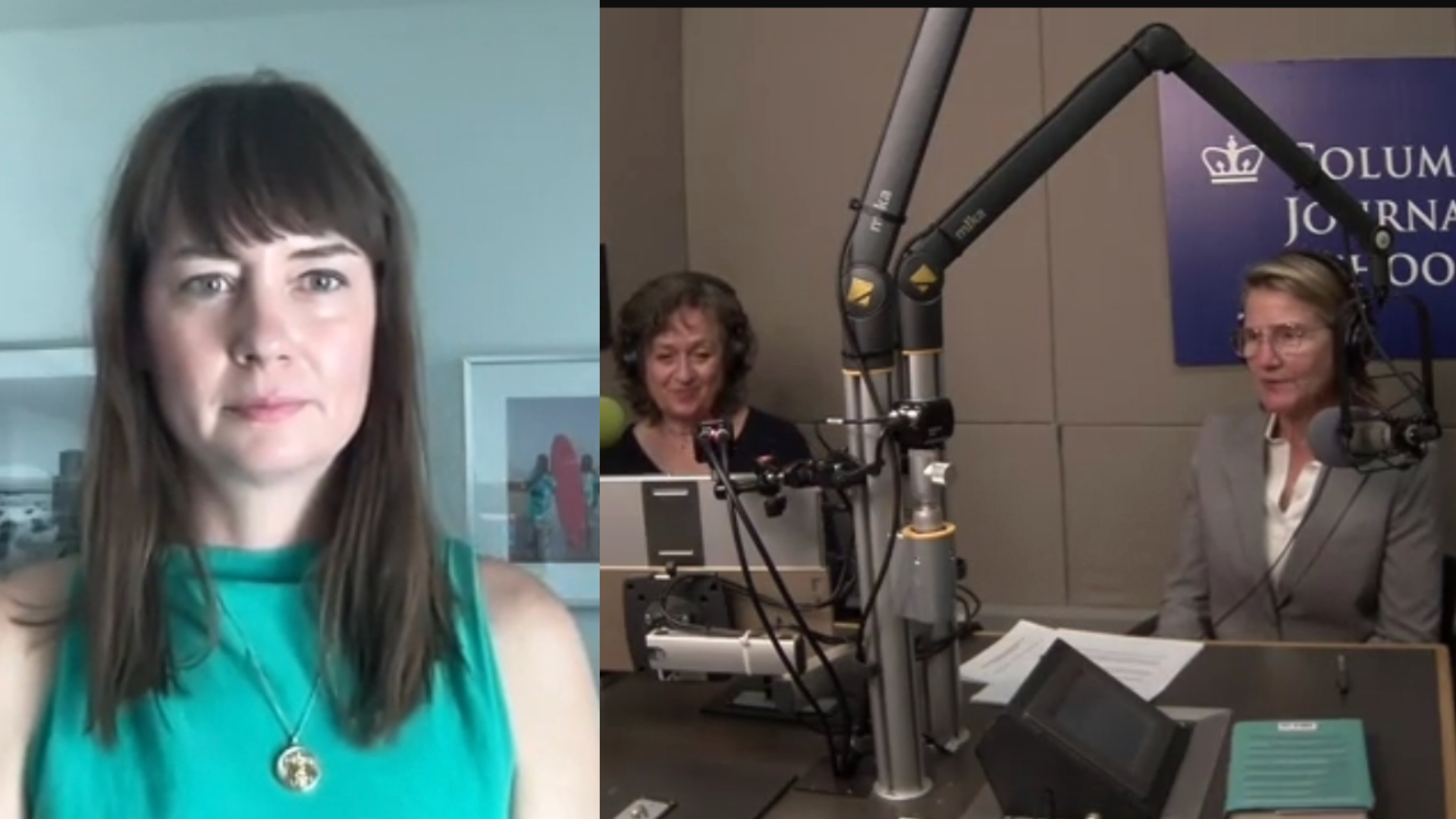









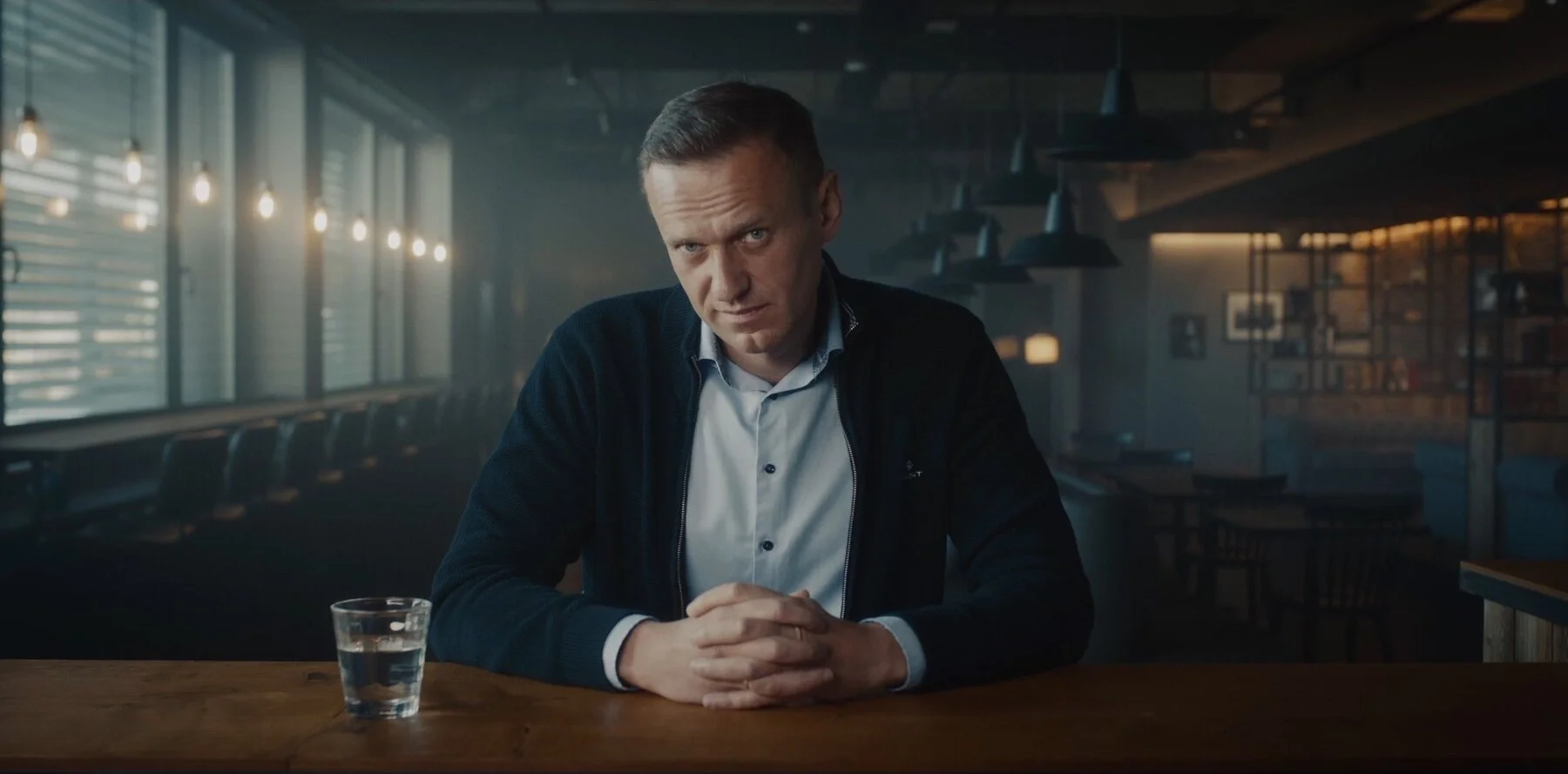


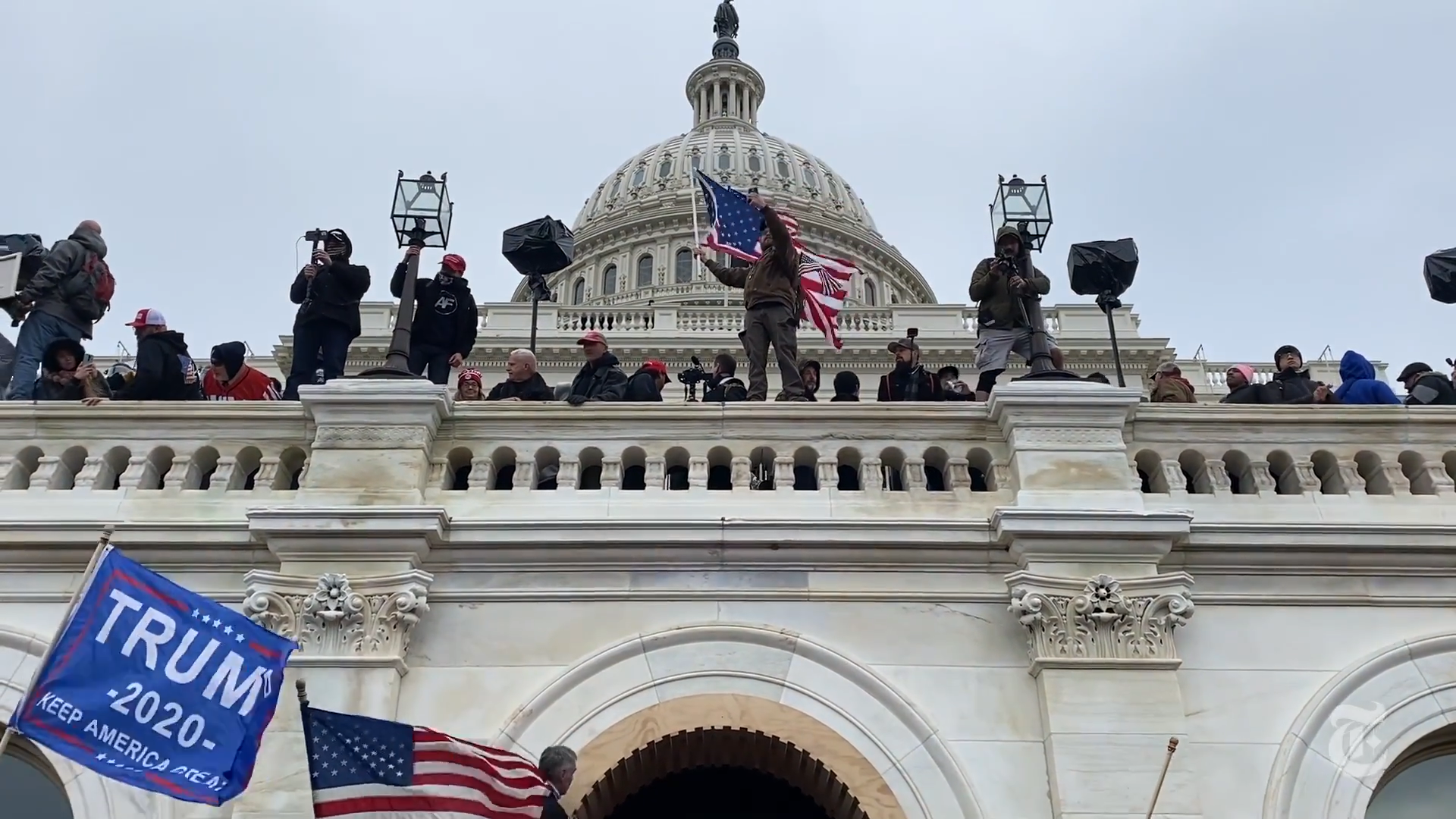
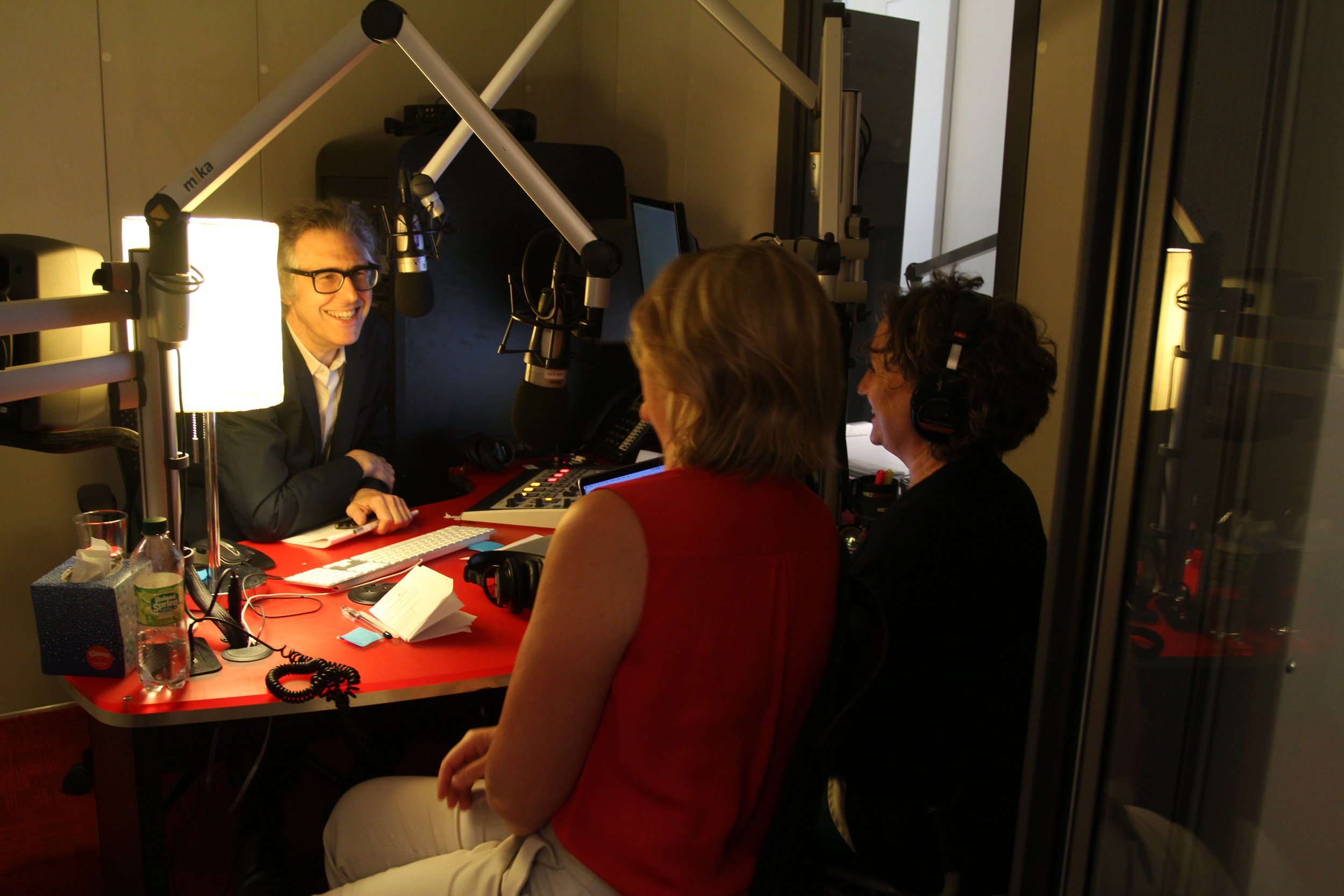

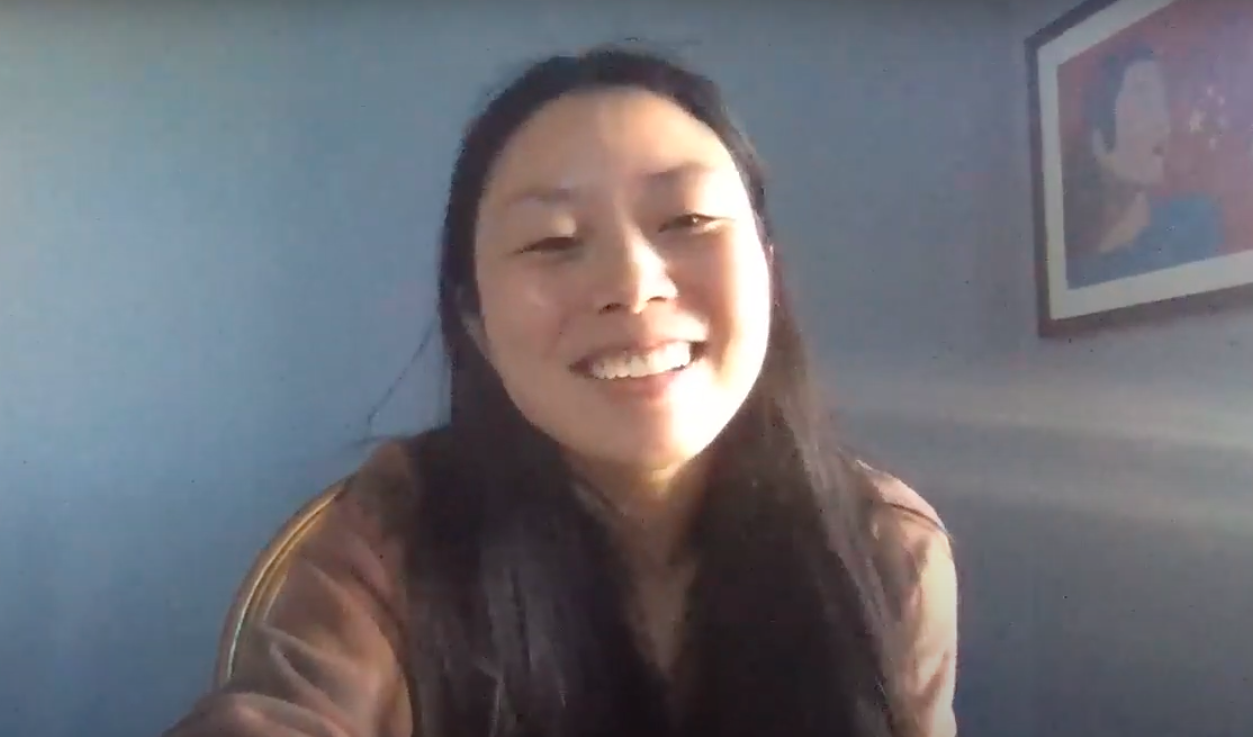

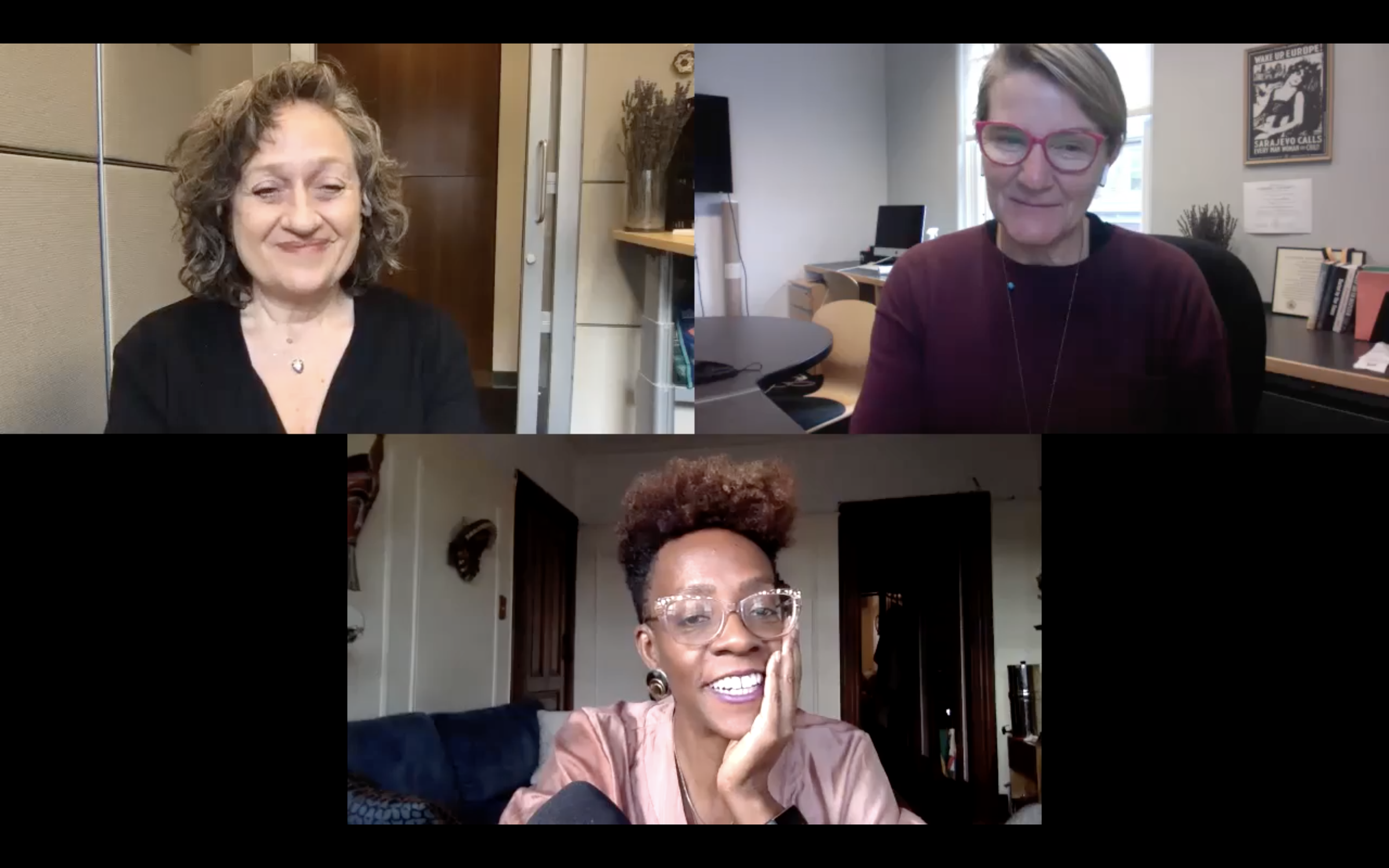










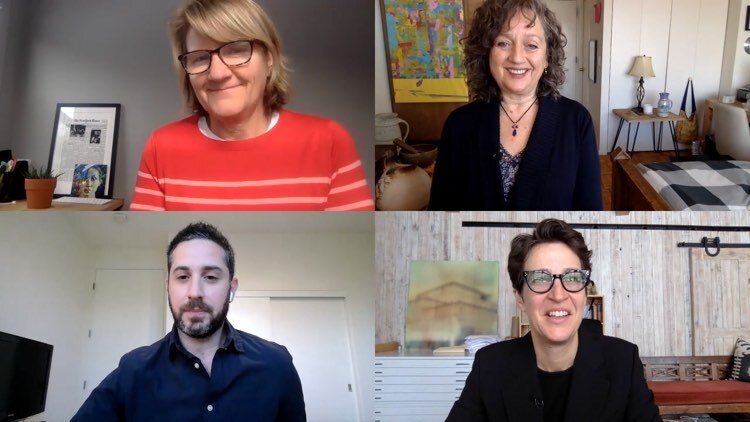
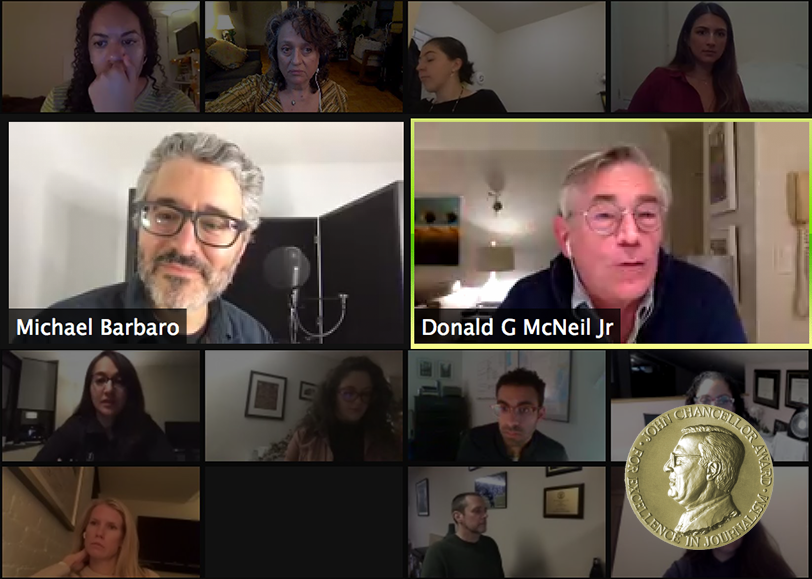




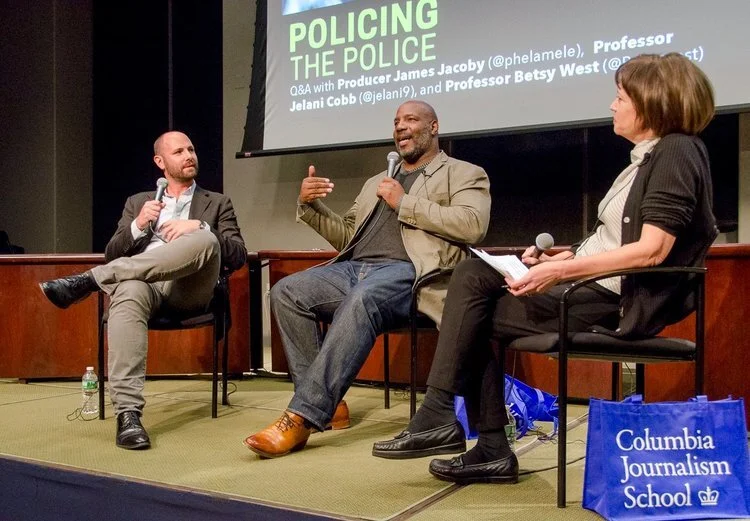





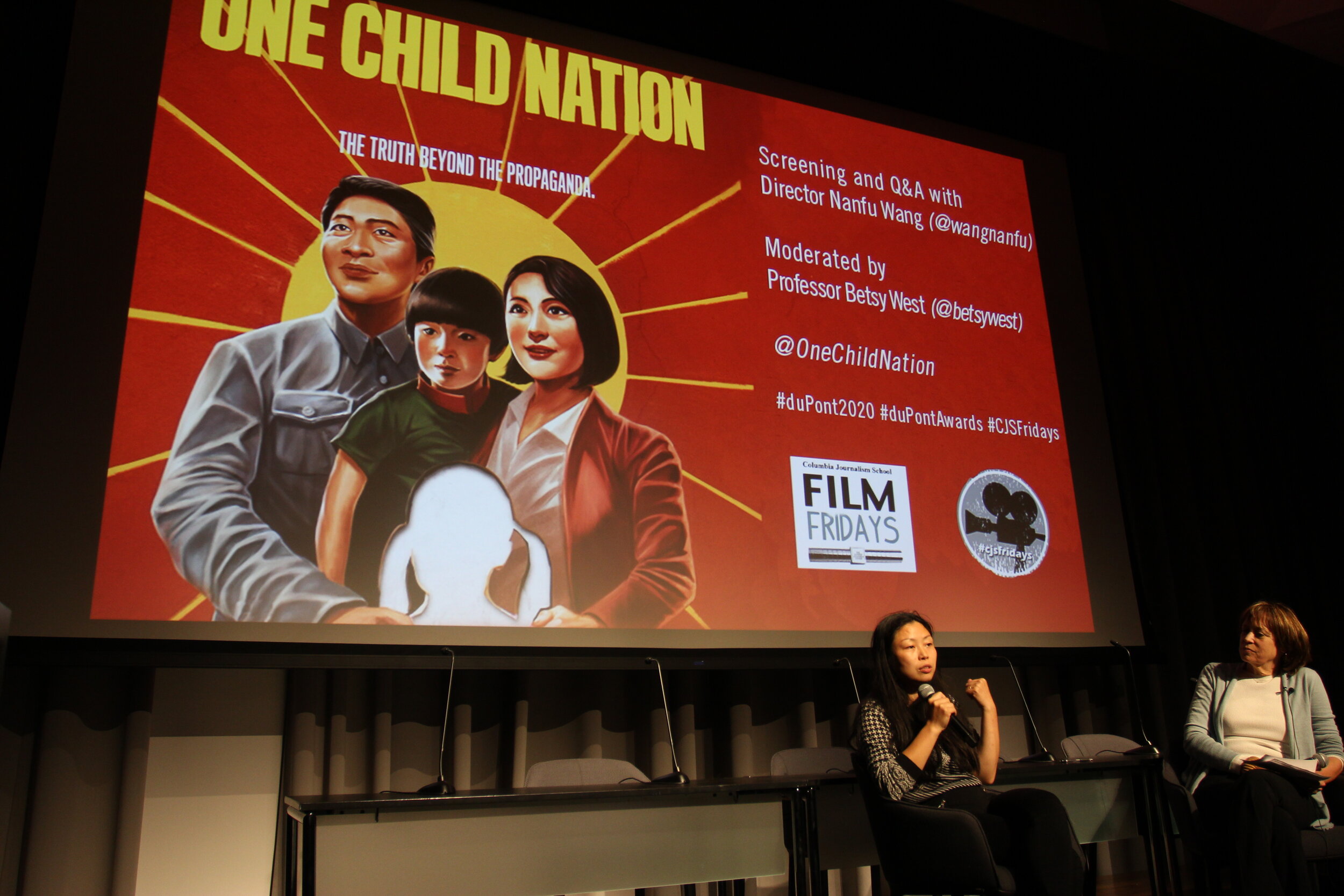



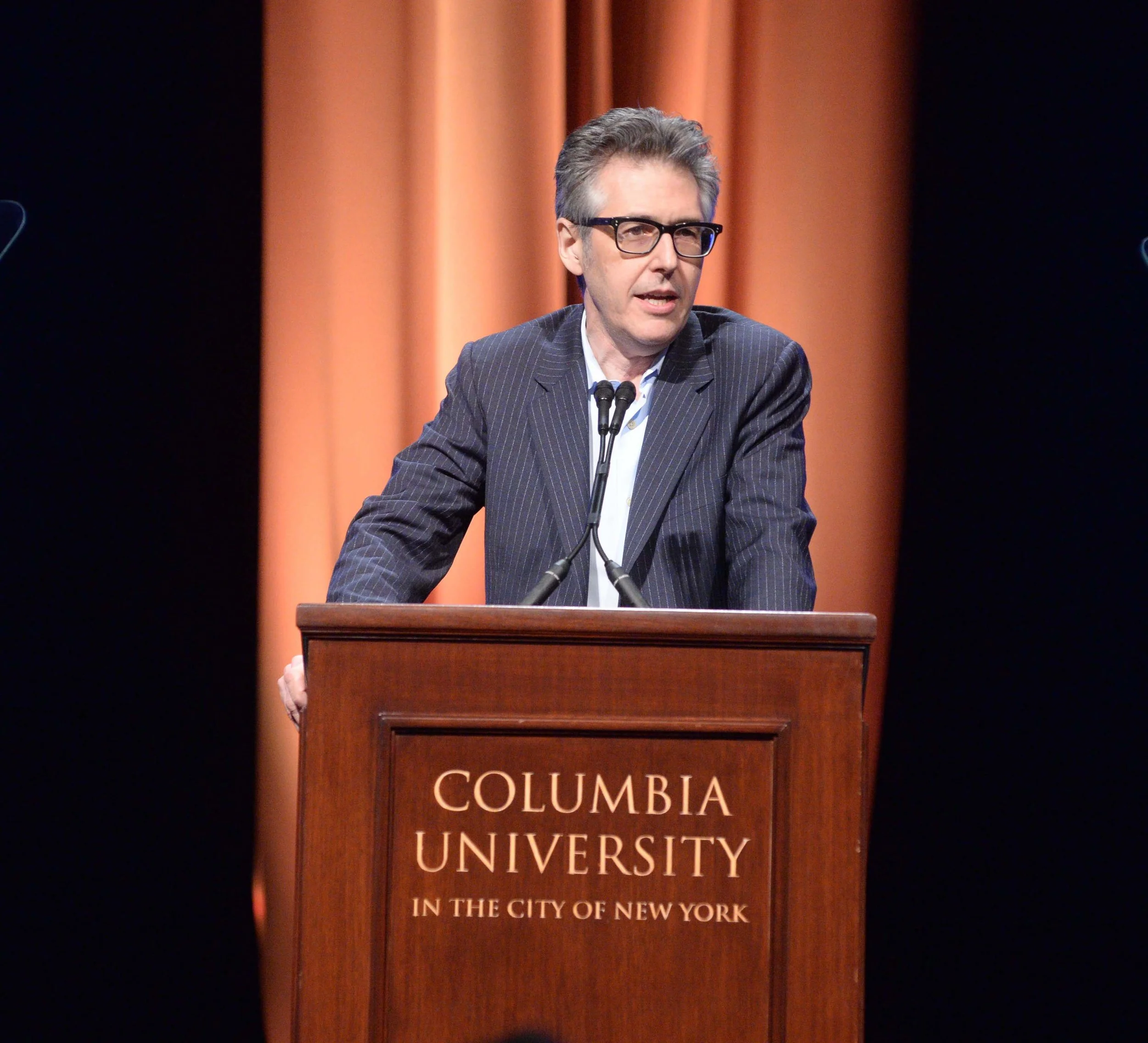















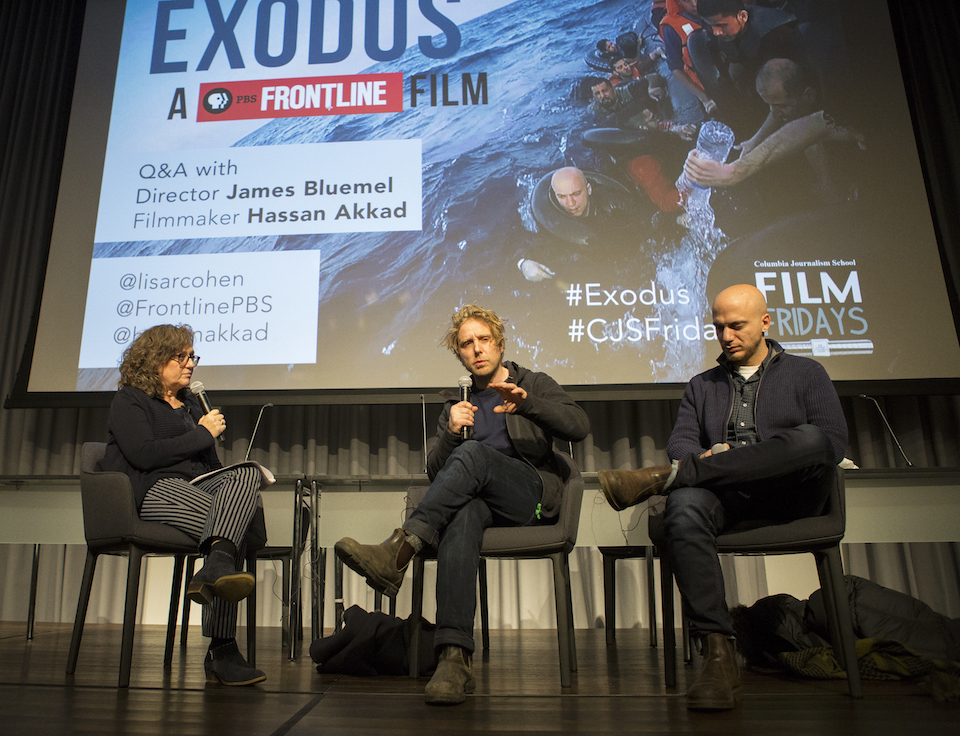
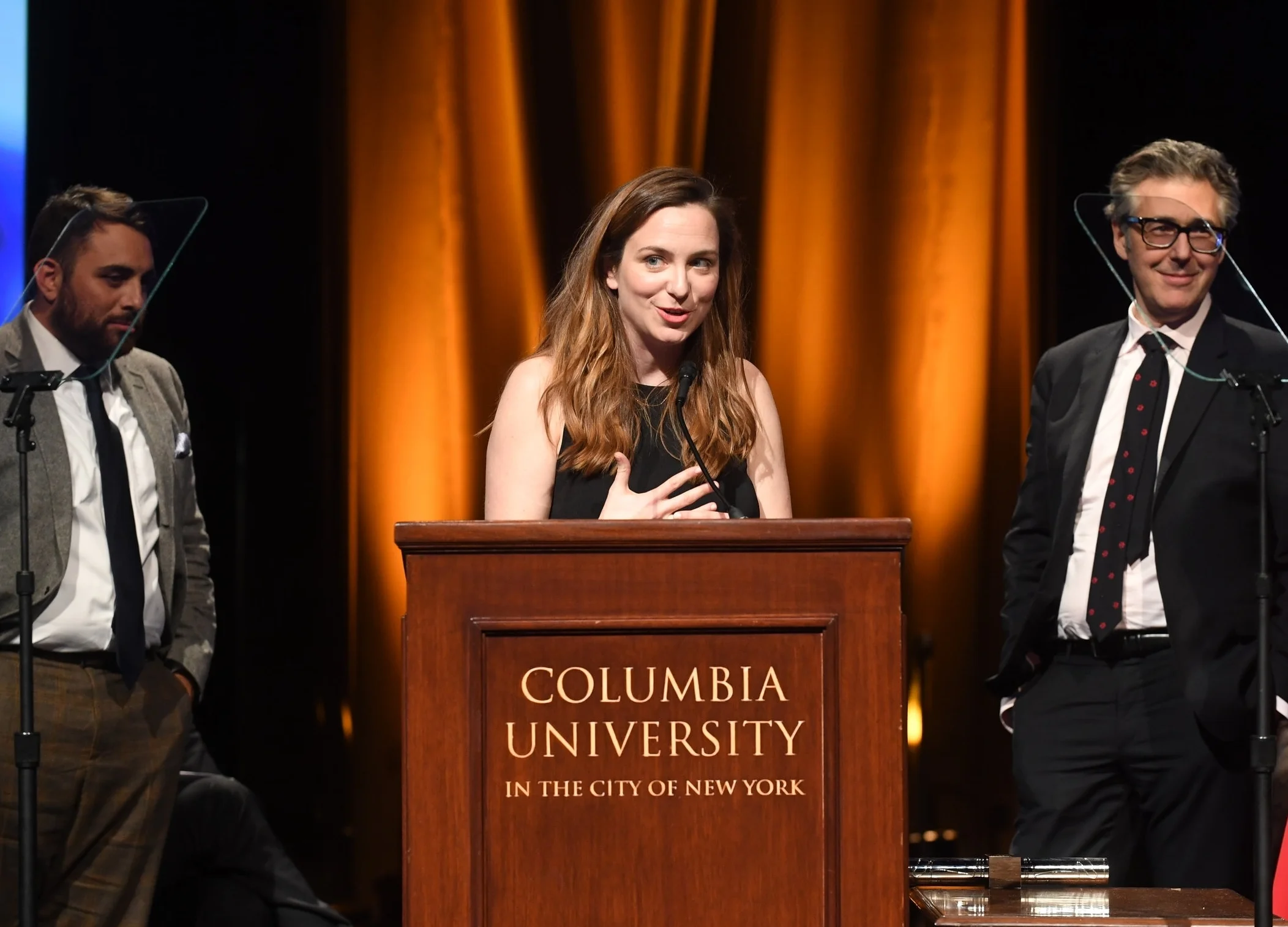




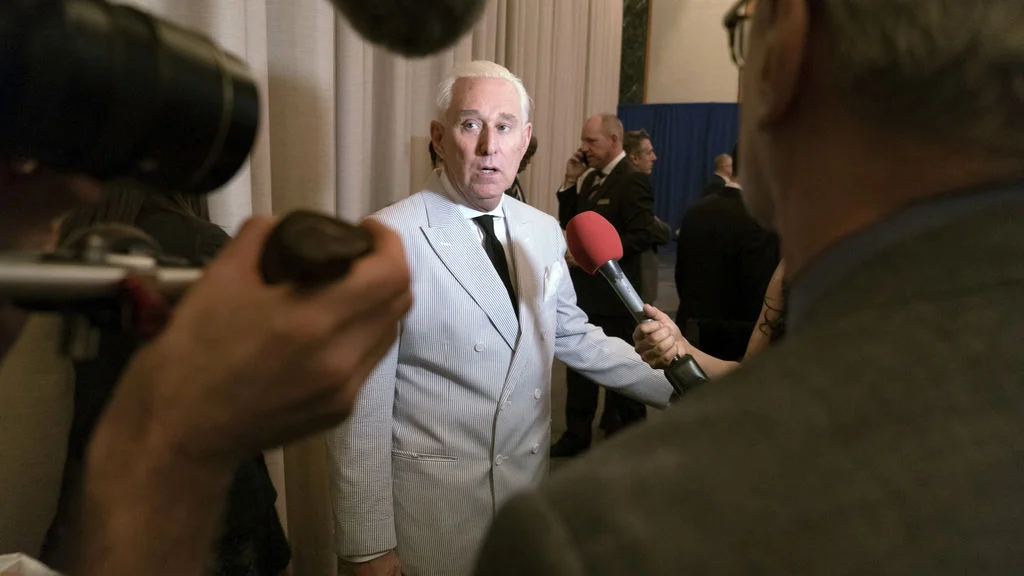






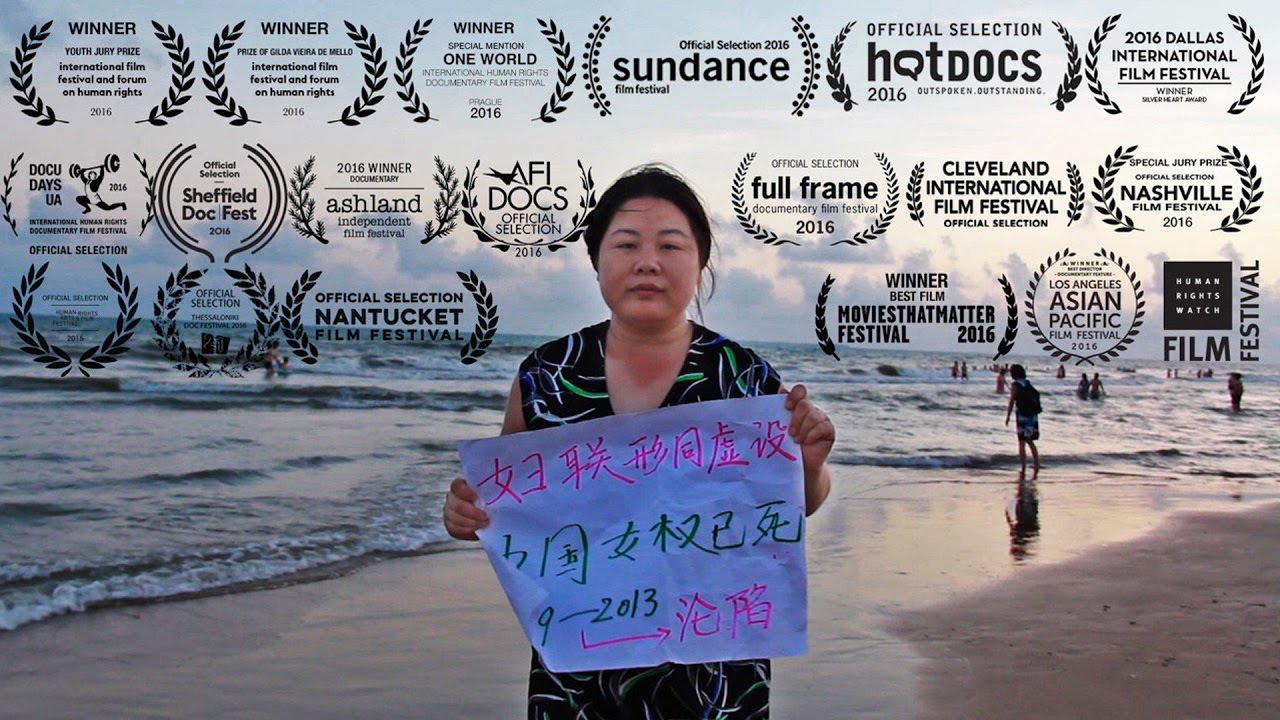


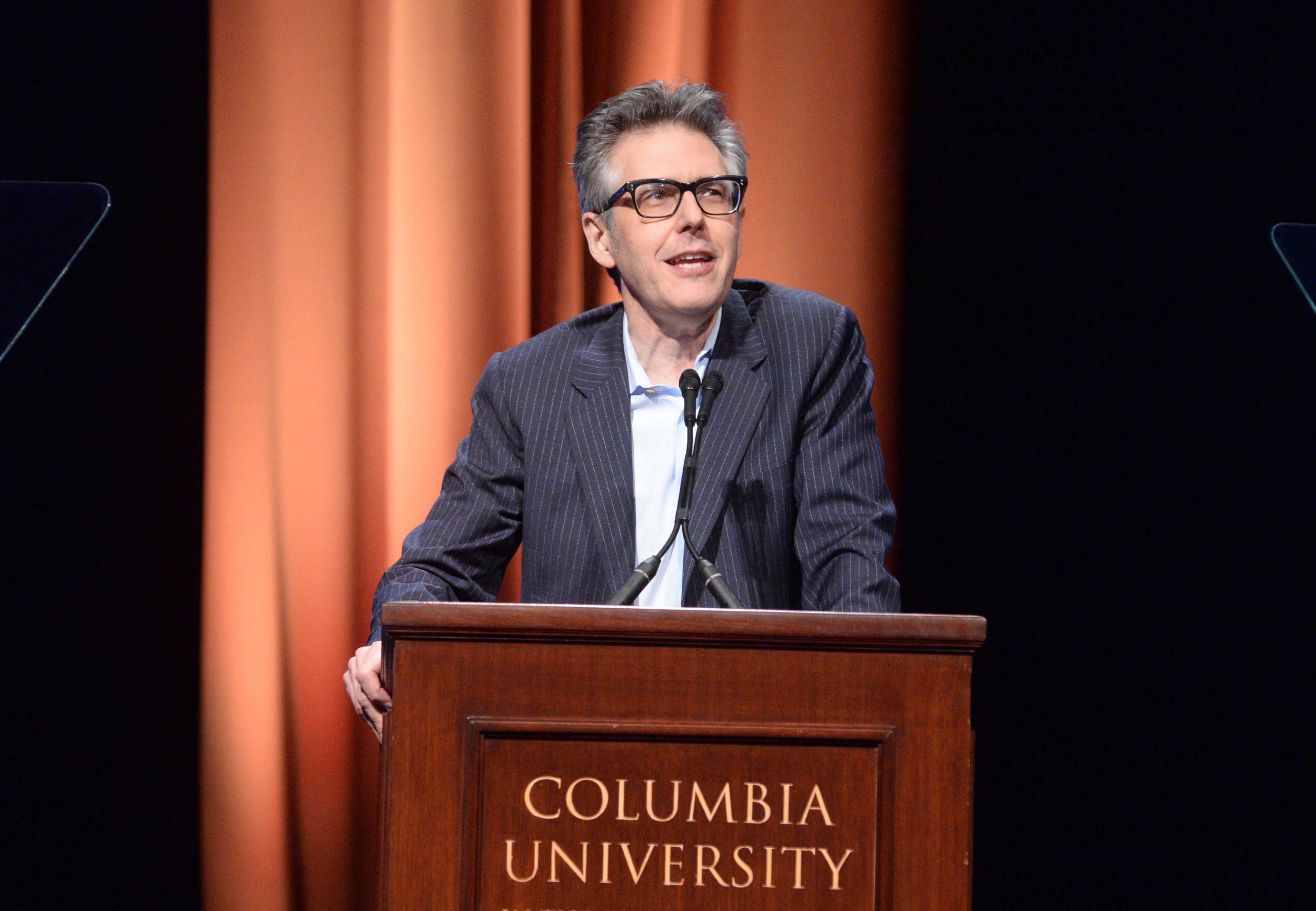









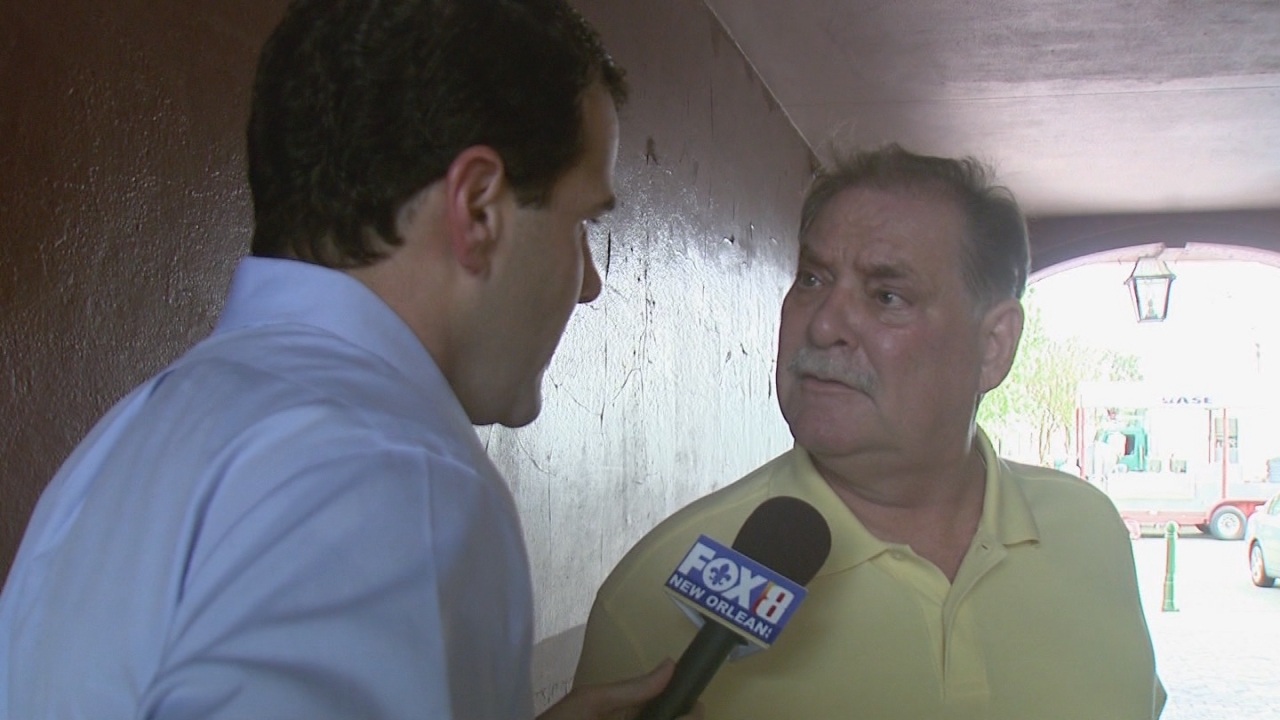






“Going into Syria itself at the point where we started shooting was basically a suicide mission. Not so much the risks of combat, but the risk of being kidnapped, sold to ISIS and having your head cut off. So we were making a film about the Syrian civil war and we couldn't shoot in the Syrian civil war.”